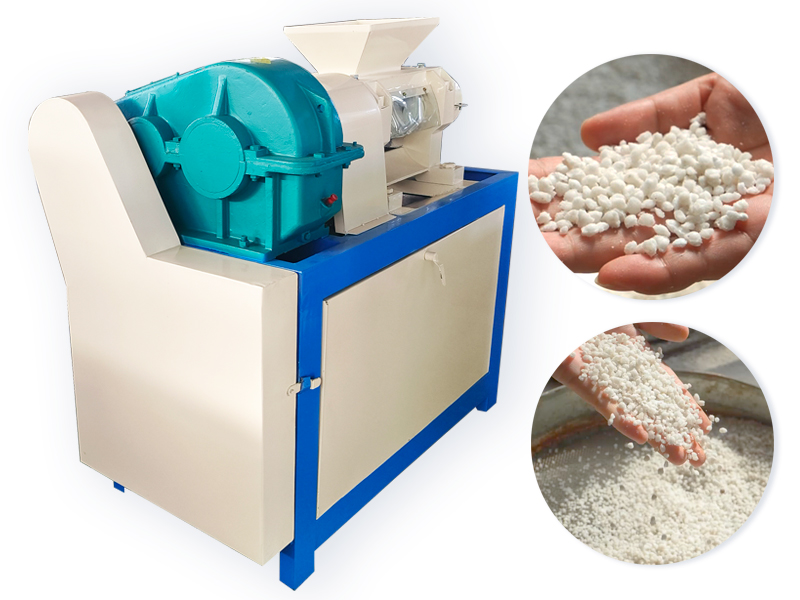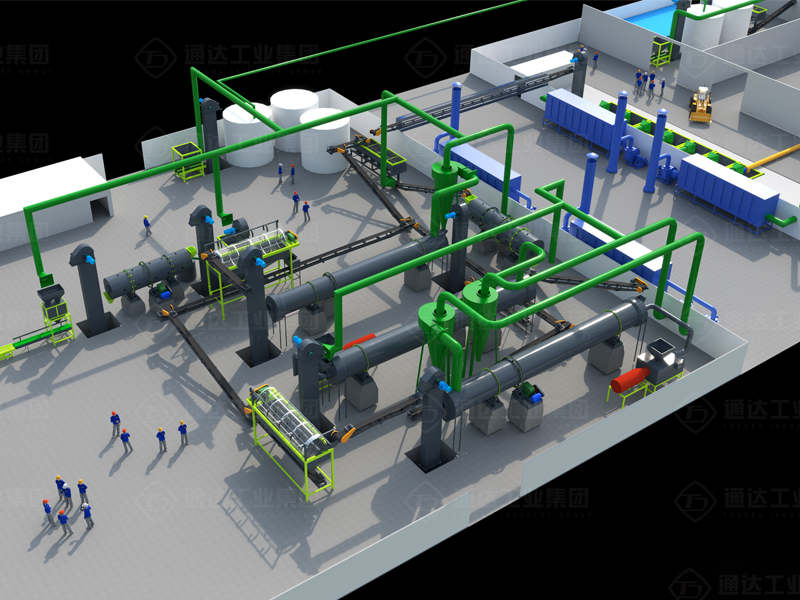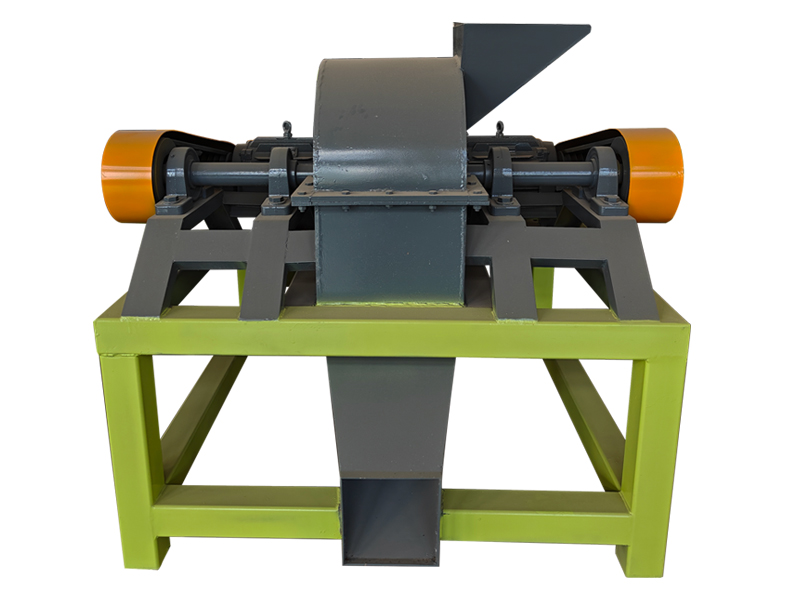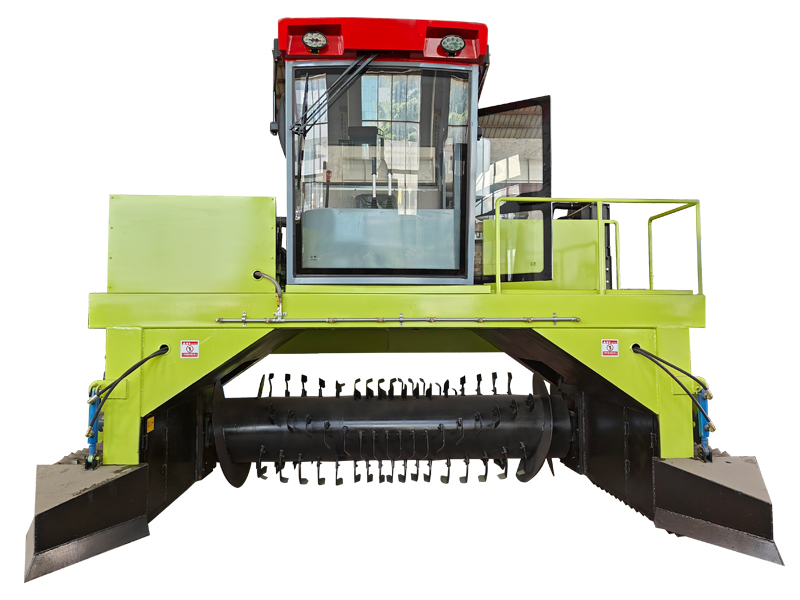Update time : 2020-12-30 Publisher:Tongda
1.What is the difference between organic fertilizer, bio-organic fertilizer, bacterial fertilizer and farmyard fertilizer?
Organic fertilizer: Generally, fertilizers containing more organic matter and derived from animal and plant organisms, livestock and poultry manure and other wastes are called organic fertilizers. However, the organic fertilizers we buy on the market are all fully mature organic fertilizers. They are a kind of beneficial microorganisms that can improve the physical and chemical properties of the soil. They are odorless and easy to transport.
Organic fertilizer can provide various nutrients for the growth of crops. Although organic fertilizer has a slow fertilizer effect, it has a long-lasting effect. It can also improve soil structure and increase soil activity, and can provide crops with nutrients that chemical fertilizers cannot provide. Farmyard manure: It is farmhouse organic fertilizer grown, raised, and accumulated by the farmer itself, mainly including green manure, stable manure, and compost. Farmyard manure that has not been completely decomposed, has a low degree of harmlessness, and contains a large number of harmful bacteria, viruses, eggs, and weed seeds. It is easy to burn roots and seedlings, and is not easy to be sold as commercial fertilizer. Bacterial fertilizer: including bacterial agent, biological organic fertilizer, compound microbial fertilizer. The main function of bacterial fertilizer is determined by living bacteria, decomposing nutrients in the soil into nutrients that plants can absorb. The good or bad effect of bacterial fertilizer is reflected in the environment and activity of the bacterial flora. If the biological bacterial fertilizer is to achieve good soil improvement and extend the life of the soil, it must be ensured that the bacteria are in a living state and can continue to reproduce.
Bio-organic fertilizer: It is a kind of bacterial fertilizer, which is completely decomposed. Compared with farm manure, its egg mortality rate reaches more than 95%, which is safer for crops, and it does not have the smell of farm manure. Fertilizer It is more uniform, and it is more convenient for us to apply.

2.How to apply organic fertilizer?
The main function of organic fertilizer is to improve the soil, so it is necessary to combine deep plowing to completely mix the soil and organic fertilizer. We can also combine soil conditioners to better improve the soil environment, balance nutrients, and increase soil aggregate structure.
3. What is the general application rate of organic fertilizer?
In general, it is better to apply 15-20 cubic meters of fully decomposed chicken manure and 35-40 cubic meters of rice husks per mu of vegetable land. Because solanaceous vegetables require a large amount of fertilizer, the upper limit of the amount of fertilizer can be taken; while the leafy vegetables require a little less fertilizer, and the lower limit of the amount of fertilizer can be taken.
4. Can organic fertilizers be combined with nitrogen fertilizers and not phosphate fertilizers?
This is indeed the case, because the nutrients in organic fertilizers are unbalanced. Nitrogen and phosphate fertilizers are more prominent. Generally, crops require more than three times the nitrogen content of phosphorus, but the nitrogen content in organic fertilizers is significantly lower than the crop requirements, while the phosphorus content Significantly higher than the crop requirements, and then applied with phosphate fertilizer will reduce the fertilizer efficiency of phosphate fertilizer.
5. What are the benefits of applying organic fertilizer and chemical fertilizer together?
1)Comprehensive supply of required nutrients
2)Chemical fertilizer has high nutrient content, fast fertilizer effect, but short duration, single nutrient, organic fertilizer is just the opposite, they can be mixed to meet the nutrient needs of crops in each growth period.
3)Reduce nutrient fixation and increase soil nutrient
4)The mixed application of chemical fertilizers and organic fertilizers can reduce the contact surface of chemical fertilizers and soil, and prevent nutrients from being absorbed or fixed by soil, thereby improving the effectiveness of nutrients, increasing nutrients in the soil, improving soil vitality, and promoting healthy crop growth.
5)Effectively regulate soil PH
6)The combination of chemical fertilizers and organic fertilizers can improve the buffering capacity of the soil and effectively adjust the pH of the soil.

see details +

see details +

see details +

see details +

Fermentation Compost Equipment >
 Tel:+86 18538527111
Tel:+86 18538527111
 E-mail:[email protected]
E-mail:[email protected]
 Address:Longgang Development Zone Of Xingyang City, Zhengzhou City, Henan Province, China.
Address:Longgang Development Zone Of Xingyang City, Zhengzhou City, Henan Province, China.
Privacy Policy Copyright © Henan Tongda Heavy Industry Science And Technology Co., Ltd.